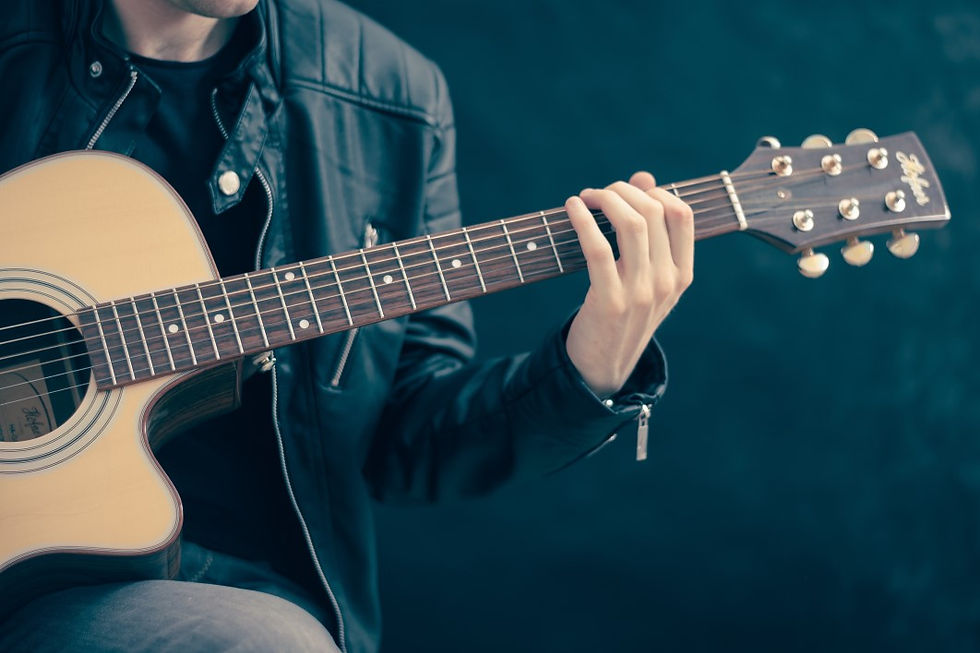The Life-Changing, Life-Saving Nature of Music
- Matt Webb

- Apr 22, 2020
- 4 min read
Updated: Dec 22, 2024
Pete Wentz, bassist and lyricist from pop punk powerhouse Fall Out Boy once tweeted, ‘in high school Metallica was like a body armour that I wore to get through every day’, and, especially in times like this, it can feel that way. Truthfully, music can be an escape for us all, no matter what genre you love. In this time of reflection, Matt Webb has been thinking about the various ways in which music influences our lives. This is an opinion piece.
The idea for this article originated from an episode of The Repair Shop on BBC 1. A man called Geoff Clarke asked the crew to repair an old jukebox, which he had in his house. Years ago, when him and his late wife Marie got married, they couldn’t afford a wedding reception, so instead hosted it at their home. The jukebox played a pivotal role in their proceedings, as the couple had their first dance to D1: Moonlight Serenade by Glenn Miller. When Geoff played the song after the jukebox had been refurbished, there wasn’t a dry eye in his home, nor in any viewers’. It was a truly beautiful moment, which made me think about the memories so often encapsulated in music.
Nostalgia for a lot of people plays a key role in their love of music. For me, the song 1973 by James Blunt does the same. I remember the track playing in the car when I was younger, and I can’t help but sing along whenever I hear it. A study by the University of Southampton shows that nostalgia makes us feel ‘optimistic for the future’. Often personified by a ‘subjective experience’ this common feeling that ‘helps us grow personally’ and gives us strength to ‘take on new challenges’. I know that, when I’m feeling nostalgic, I reflect on the past and look to the future, both activities that I would thoroughly recommend in today’s circumstances.

It’s not just nostalgia that makes us love music; it can sometimes be a personal adventure that the song is inspired by and written about. Whenever I hear ‘Wake Me Up When September Ends’ by Green Day, I’ll tear up, as the song is so profound. It is based off of lead singer Billy Joe's feelings of loss, after his father died when he was nine. The line ‘Wake me up when September ends’ is one that a young Billie Joe penned at school, paying homage to the month in which his father died. On the Howard Stern Show, Armstrong emphasised ‘I think about him every day’. This is probably the reason why I started crying when I heard him singing this song on BBC 1 during their ‘Together at Home’ special, on which he performed the song acoustically. It’s clear how personal this ballad is to the band.
Furthermore, fans’ lives have been impacted by artists and their music. I’m very lucky to be a part of these groups, or ‘fandoms’, which celebrate artists and their music. I have been chatting to a few members of the fan community, to ask them how certain artists' music has changed their lives. I started by talking to @skeletalstump on Instagram, who runs a Fall Out Boy fan page. They explained, ‘Fall Out Boy has made me the person I am today. They’ve created and fostered a safe and inclusive environment where people can come, make meaningful connections, listen to great music, and feel understood.’ They went on to say, ‘Their willingness to be so open about their own personal struggles and ability to seamlessly explore these ideas in their music is something that has changed me for the better and made me realise I am not alone.’ This point is one that others definitely understand and agree with, including bassist and lyricist of Fall Out Boy Pete Wentz. Most of the songs in the band’s early discography (2003-2008) stemmed from Pete's struggles with mental health. He suffered with severe anxiety and was self medicating at the time. Partaking in the Child Mind Institute mental health campaign in 2019, Pete said ‘I think you’re not really alone because people are all feeling that - feeling great and feeling terrible.’ This synergy between fans and stars can really begin to build a relationship, and break down barriers.
@skeletalstump went on to say ‘I couldn’t tell you where I would be or who I would be without the band; they have changed my outlook on life to a more positive one, and helped me [to] make so many important connections that I know will last for decades to come.’ I think that sense of community is such an important takeaway for fans all over the world. So many of us have made friends through a love of music, and these fanbases have opened up people’s eyes to a wider world of unity and togetherness. Whether it be through Instagram, Twitter, or any other social media, these artists have created a safe space where lovers of music can chat and share their passion for music.
I think music is particularly key in our lives, especially in this current climate. It is so accessible, and can help us to feel a whole range of different emotions, from joy to sadness. Music can create both unforgettable moments, and friends, that we will hold on to for the rest of our lives.

_edited.png)



Comments